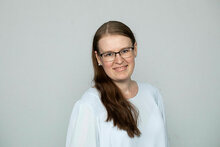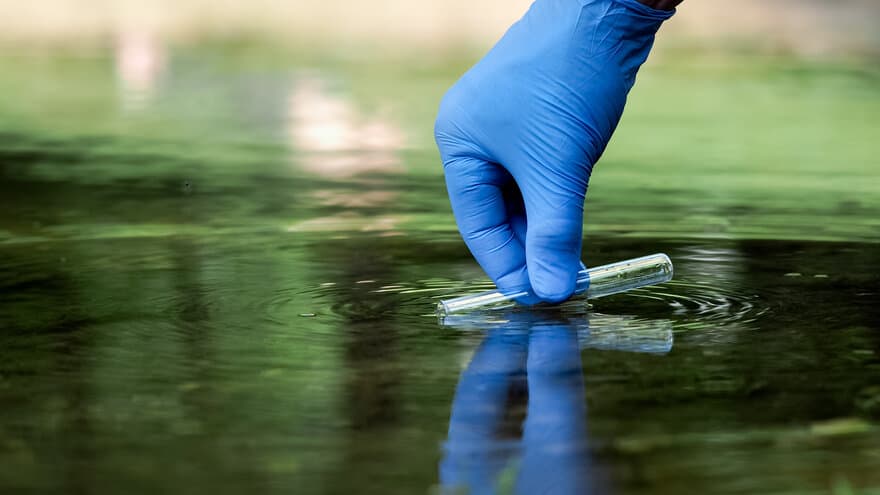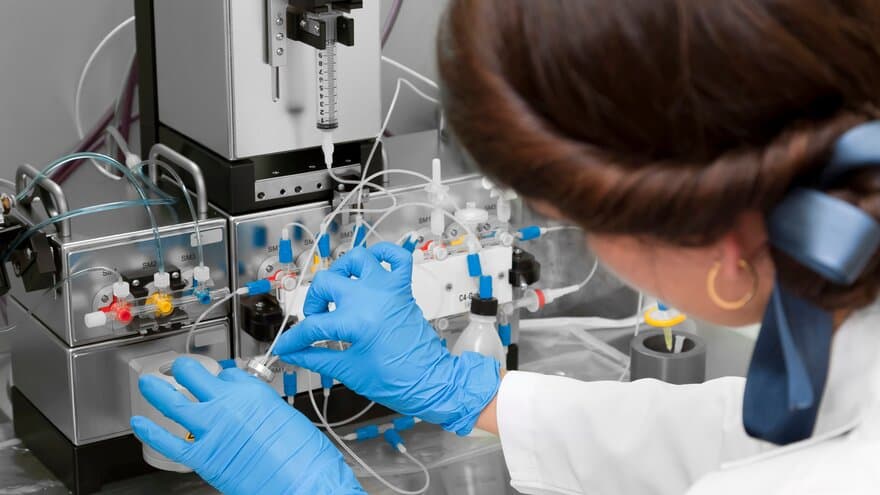Master's degree (2 years)Full timeNuclear and Environmental Sciences
Would you like to develop solutions for the safe handling of radioactivity in energy production, medicine, and the construction industry? You will gain specialized expertise through hands-on experience in the field, in the laboratory, and through nuclear emergency preparedness exercises.
ECTS credits:
120
Application deadline:
Norwegian, Nordic, EU/EEA and Swiss citizens: 15th of April.
Students outside EU/EEA/EFTA: 1st of December.
Start of Studies:
Autumn
Required points:
Number of students:
14
Requirements:
Relevant Bachelor's degree required. Admission grade point average of C.
Requirements in detail
Norway needs candidates with knowledge in nuclear sciences (the study of atomic nuclei, radiation, and radioactivity). This master’s program will provide you with solid skills required for a career both nationally and internationally where nuclear expertise is essential.
You will learn about the effects and consequences of radioactivity in the environment and gain insight into radioactive contamination alongside other types of pollution in nature. In addition, you will develop an understanding of radiation protection principles and how Norway’s nuclear emergency preparedness system operates.
There is a growing focus on nuclear power as an energy source, while Norway is simultaneously decommissioning its old research reactors. This requires knowledge of cleanup processes and the potential recovery of radionuclides (unstable atoms that emit radiation) for various purposes.
Nuclear accidents have demonstrated the need for national preparedness. Today, expertise in nuclear emergency preparedness also addresses challenges related to conflicts in regions with nuclear facilities and the threat posed by nuclear weapons.
Natural radioactivity is also present in Norway’s bedrock, creating challenges for several industries such as oil and mining. It also leads to high levels of radon in homes.
The knowledge you acquire will be applicable across many areas of applied science. From protecting health and the environment to nuclear emergency preparedness and the safe decommissioning of nuclear installations. This master’s program aims to meet current and future needs for nuclear expertise.
The program is taught in English.
See the full overview of the program structure and all courses
Career opportunities
The job market within nuclear sciences in industry, public administration, and research is extensive, and expected to grow significantly in the near future. Our former students now work in a wide range of positions, from research institutes to industry and government agencies.
Tasks you will be qualified to perform:
- Conduct risk assessments and impact analyses within nuclear and environmental sciences, radiation protection, and nuclear emergency preparedness.
- Plan and carry out field sampling.
- Perform analysis of various radionuclides and inorganic substances.
- Prepare professional recommendations, decision-making documents, and action plans for preventive and emergency measures.
- Handle case processing, reporting, and quality assurance in accordance with current laws and regulations.
Who are typical employers?
There are many potential employers, both in the public and private sector. At the state level, typical employers include the Norwegian Radiation and Nuclear Safety Authority (DSA), the Norwegian Environment Agency, Norwegian Nuclear Decommissioning (NND), the Norwegian Public Roads Administration, and the Norwegian Water Resources and Energy Directorate (NVE). In the private sector, relevant companies include Multiconsult, Veidekke, Lindum, Norwegian Geotechnical Institute (NGI), and the Institute for Energy Technology (IFE).
Can I continue with research?
With a Master’s degree in Nuclear and Environmental Sciences, you will also be qualified to pursue a Ph.D. program. Read more about our PhD student Aleksander, who is researching radioactivity in water. He previously wrote his master's thesis on the toxicity of uranium at the MINA faculty.
Learning outcomes
Exchange possibilities
Program structure
More about the program
Study advisor(s):






